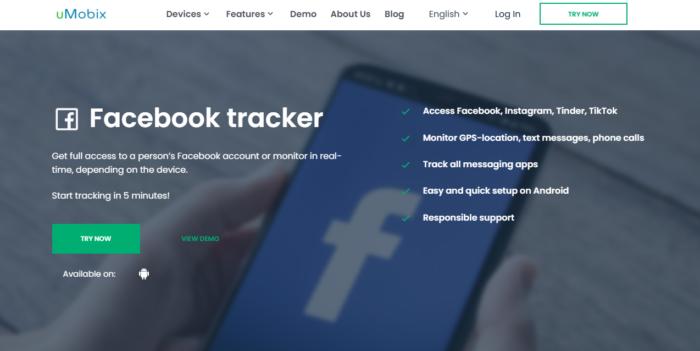
Businesses need relationships to thrive. When compared to first-time customers, repeat customers spend 67% more on purchases. Empathy is essential to build relationships that create repeat customers. This is especially true for B2B companies because their patrons are looking for the best way to satisfy their customer base.
Empathetic marketing means your client is at the heart of your operations. You must understand who they are holistically. Analytics can tell you what people like, but they do not help you fathom the hardships in their life or what drives their decisions. This style of marketing focuses on recognizing these characteristics to best serve their needs.
How vendor decisions are made
First, it is crucial to appreciate how vendors are chosen. Companies must have the resources necessary to operate, and that means selecting the correct vendor to fulfill those needs. Each business will have its own way of picking its suppliers.
Decisions about insignificant purchases, like paper clips, can be made quickly without extensive research into the product. On the other hand, large items, like the fabric used to manufacture clothing, require a more thorough selection process. A bigger business may have a board of people to debate these decisions. Price, quality, customer service, turnaround time, and more are all taken into consideration.
In addition, making your values known and upholding them will help you draw in and retain new customers because people want to support real people who have values like theirs. Also, it is paramount to secure trustworthy representatives since they influence how consumers view your brand. There are many red flags to keep an eye out for to prevent a dishonest ambassador.
Think about a time where you had a poor experience with a brand. It likely drove you to seek out a new company for the same product. You’ll want to avoid these same mistakes you have been on the receiving end of, and empathetic marketing can sway vendor decisions to your advantage.
Apply empathy
Recall that companies are run by people, and businesses thrive with good relationships. Empathy can assist in cultivating these connections, but how can you apply empathy to your business model?
You must get to know your patrons, and this is not just about collecting data points. There are many ways to get to know your clients. You can send surveys, ask for feedback, or read reviews; however, the best way is to keep lines of communication open.
Emails, phone calls, or in-person conversations will help you get to know your customers better, yet that is only the first step. It is important they know their feedback is taken into consideration. It is still your business, so do not feel like you have to make all the changes suggested to you. Nevertheless, the customer should feel heard.
To go above and beyond, you can inquire specifically about your client’s operations, so you can tailor your supplies and services to best suit their needs. For example, offering a variety of ways to accept payment is a small change that can greatly improve your patron’s experience. According to recent surveys, over 70% of online customers report favoring a credit card exclusively for their digital transactions. Knowing and acting on these small things will make their experience with your brand more personal and pleasant.
Another way you can put your clients at the center is to reward their loyalty, and there are endless possibilities of how you can do this. Of course, there are loyalty programs, discount codes, or bulk pricing options. If you want to take a more personalized approach, you can learn when their sales dip during the year and offer discount codes or free shipping to show your support during these stressful times.
One example comes from Domino’s, the pizza restaurant franchise. Participating locations supported small and locally owned businesses this year by purchasing gift cards to give away to their customers. Over 2,000 gift cards were purchased and given out. This showed their support for local businesses and enhanced their rapport with their patrons. There are many benefits to be gained from generosity; however, it should not put your own business in jeopardy. As well, you should be cautious of false or poor charity. A company that flaunts donations yet fails to support its own employees will be seen as dishonest and could cost you more than just bad press.
The fastest way to lose trust and patrons is a security breach. In 2021, the average cost of a data breach was USD 4.24 million. Successful cyber-attacks not only cost you financially but also in team morale and reputation. Thus, cyber-security is a vital part of any business.

A multilayered approach will help you protect you and your client’s data from criminals. This strategy includes using firewalls, anti-virus software, VPNs, and ongoing user security training. Keep in mind that not all security products are created equal. Some VPNs have been known to leak information, so be sure to research which programs are going to do the best job at protecting your private records.
Client acquisition and content strategies
Acquiring new clients takes dedication and time. To gain new clients, they will have to know who you are and what your business is about. SEO will help you maintain and increase your ranking in search engine results. There are several types of software available for SEO.
Additionally, you must consider where and how potential buyers will run into your advertisements. Social media ads, embedded ads, and mailing lists are all ways to reach new audiences. Retention advertisements can be done through text messages and email newsletters, and these require a delicate balance to preserve users’ attention without driving them to unsubscribe.
Personalization is becoming a crucial part of marketing. If you’ve employed empathetic marketing, then, you’ll have a better idea of what makes your customers tick. You should tailor content that fits the desires of your buyers like creating tutorials or offering hacks to better use your products.
Conclusion
Empathetic marketing can bring your company a competitive advantage. In a world where there are endless options to choose from, people are willing to search for and select a brand that aligns with their beliefs. Moreover, they want to support businesses that support them in return.
Empathy will help you build and retain strong relationships, and you will gain insights into your customers. This information will allow you to customize communication, services, products, and content that help your patrons feel valued. Lastly, a good reputation will attract new clients and keep your current ones pleased to continue doing business with you and your company.
Guest author: Lee Li is a project manager and B2B copywriter from ShenZhen, China, and is currently based out of Singapore. She has a decade of experience in the Chinese fintech startup space as a PM for TaoBao, MeitTuan, and DouYin (now TikTok).
The post Empathy Marketing: How B2B Businesses Can Gain a Competitive Advantage appeared first on Jeffbullas's Blog.
* This article was originally published here

No comments:
Post a Comment